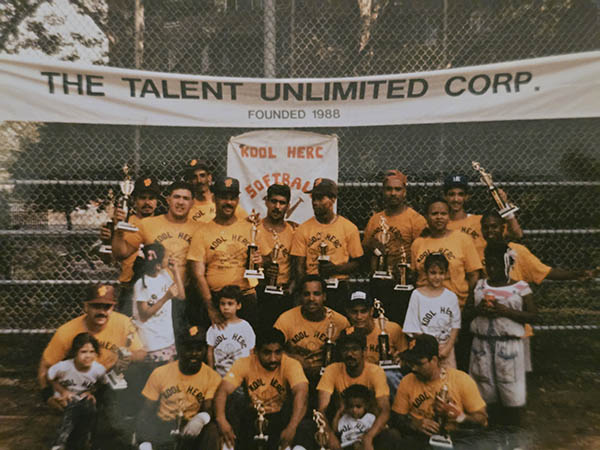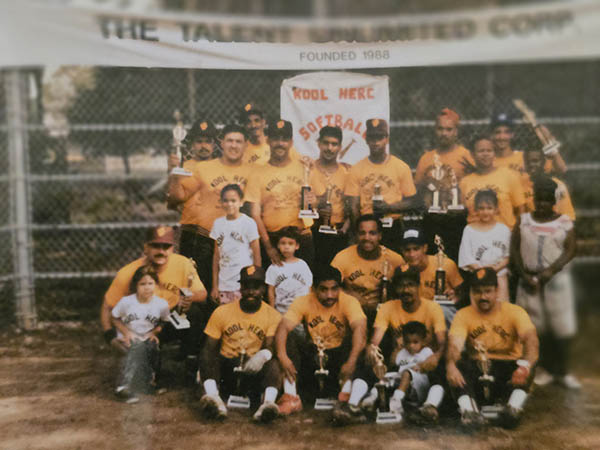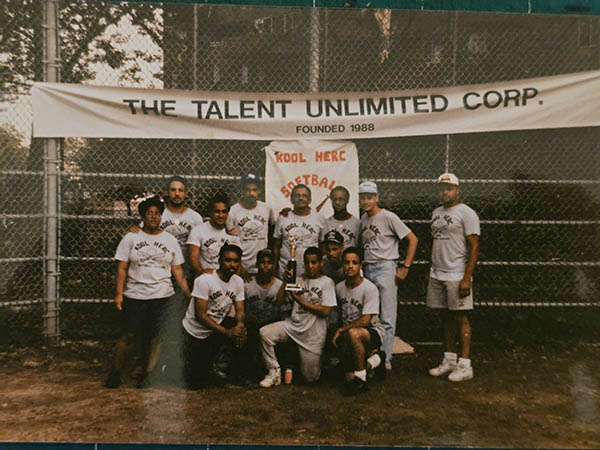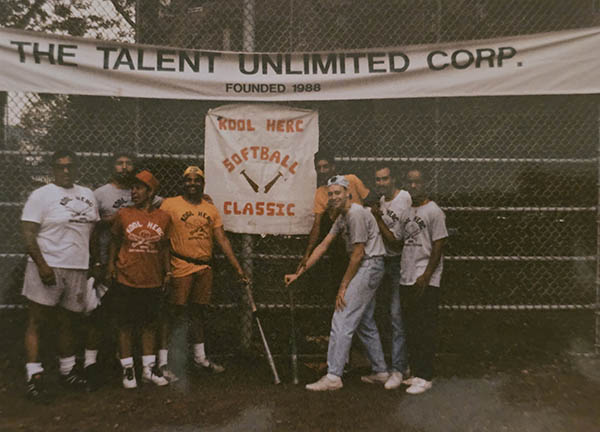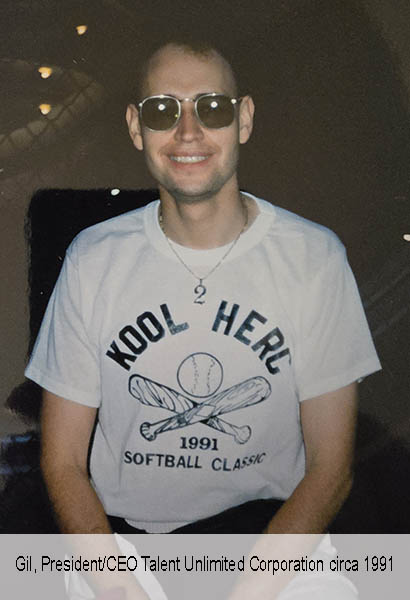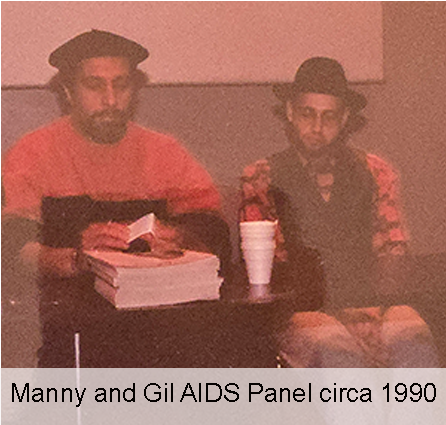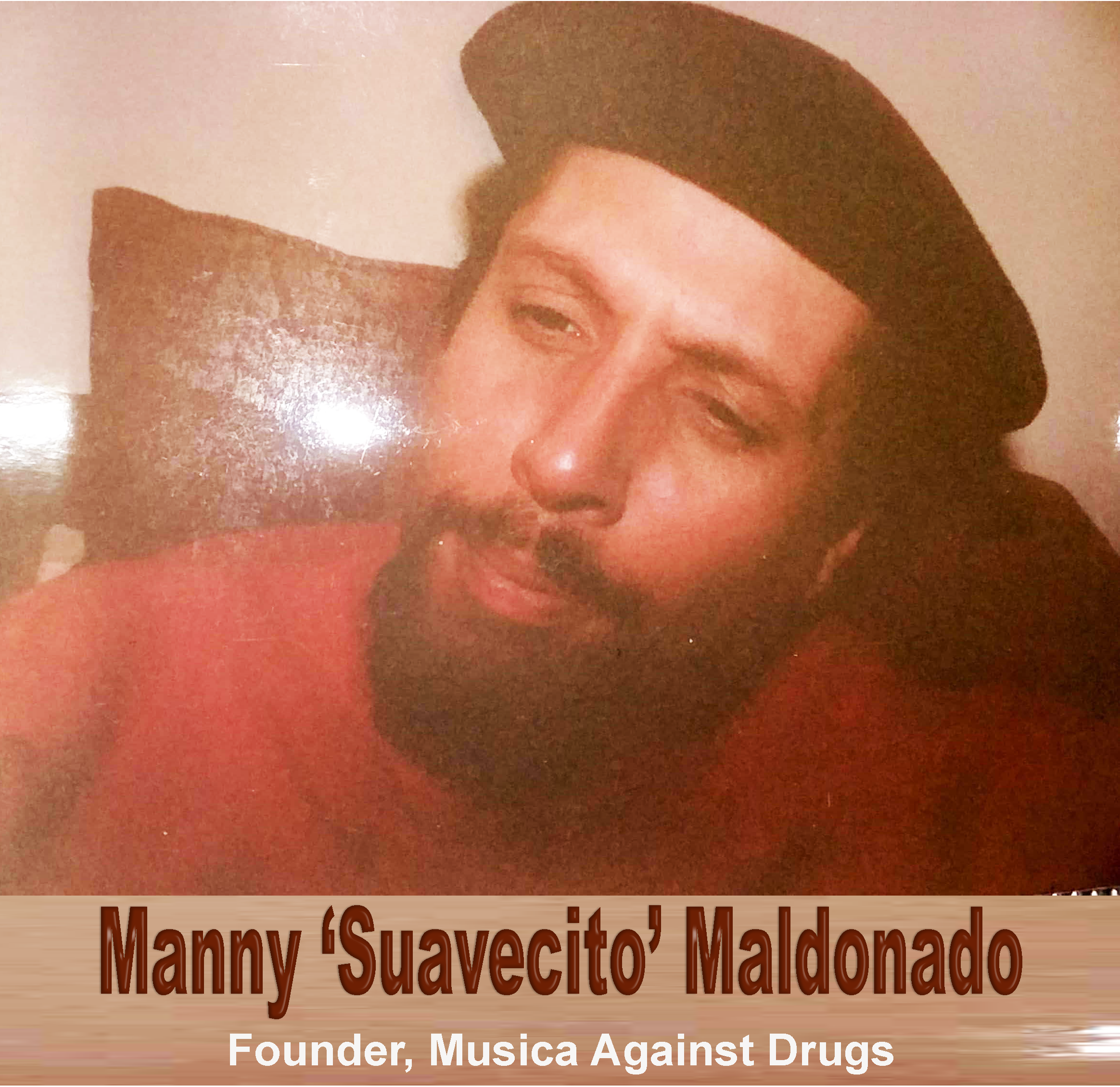 A Tribute to Manny “Suavecito” Maldonado and his Legacy
A Tribute to Manny “Suavecito” Maldonado and his Legacy
MUSICA AGAINST DRUGS
THE BEGINNING:
GRACIE SQUARE HOSPITAL, OCTOBER 1988
In the fall of 1988, my life was on a collision course with self-destruction. Years of battling heroin and cocaine addiction had brought me to the brink, leaving me with little hope for the future. Admitting myself to Gracie Square Hospital felt like a last-ditch effort to reclaim something resembling a normal life. It was here, during this bleak chapter, that I encountered the man who would change everything—Manny “Suavecito” Maldonado.
Manny was not just another voice in the crowd; he was a beacon of hope, a man who had endured the same struggles I had, and who had emerged on the other side with a profound sense of purpose. His message wasn’t just about survival; it was about thriving beyond addiction. Manny’s words resonated with me in a way nothing else had. He didn’t just speak about recovery; he lived it, and he invited me to do the same.
After 35 days in that hospital, I was discharged, but I knew the journey ahead would be arduous. Manny had promised to be there for me, and he became my sponsor, my mentor, and eventually, my best friend. Together, we embarked on a path that would not only transform my life but also bring hope to countless others.
FROM TALENT UNLIMITED
TO MUSICA AGAINST DRUGS
Even before I had fully committed to my recovery, I was deeply involved in my community. I co-founded a non-profit organization in East Harlem called the Talent Unlimited Corporation (TUC). Despite my ongoing struggles with addiction, I poured my energy into building this organization, driven by a desire to make a difference. After my discharge from Gracie Square Hospital, Manny became aware of my efforts and saw potential in the work I was doing. I invited him to join the board of directors at TUC, recognizing the value he could bring to our mission.
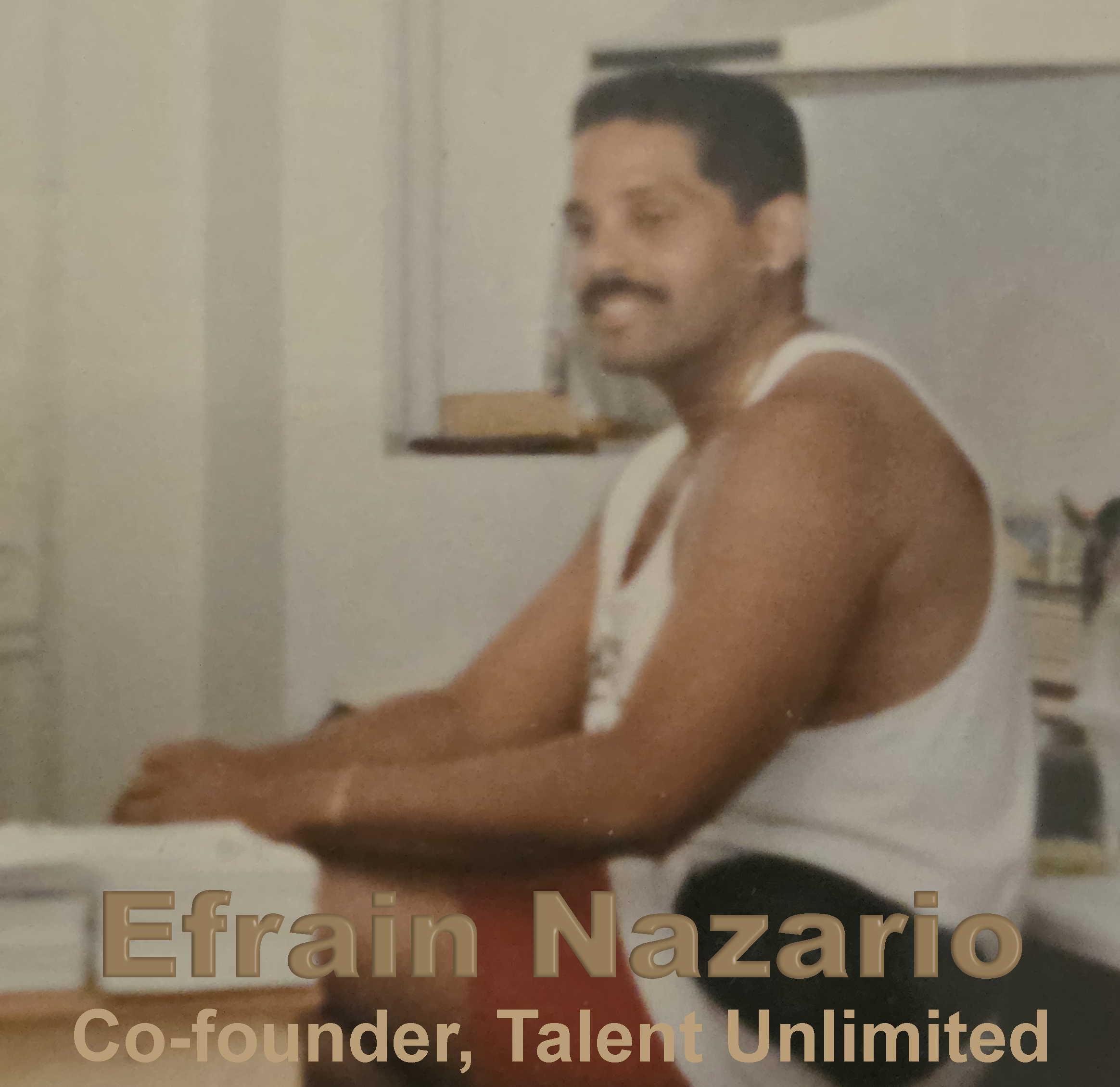
It wasn’t long after that Manny shared his vision for Musica Against Drugs with me. His idea was revolutionary: to use the healing power of music as a tool for recovery and empowerment within the Latino community. Recognizing the synergy between our goals, we decided to make Musica Against Drugs a committee within TUC. It was a natural fit, as both of us were passionate about using creative outlets to uplift those struggling with addiction.
We worked side by side for a time, blending our efforts to serve the community. However, as often happens in such intense partnerships, disagreements arise. Manny decided to take his idea to Brooklyn while I continued my work with TUC in Spanish Harlem. Despite our differences, we never lost sight of our shared mission. Eventually, we reconciled, and I helped Manny further develop Musica Against Drugs, ensuring that his vision could reach its full potential.
THE IMPACT OF JOHN LEGUIZAMO
AND THE POWER OF COMMUNITY
During this period, TUC continued to thrive, and music remained at the heart of our work. A turning point came when the team behind John Leguizamo, a rising star in the Latino community, contacted us. Leguizamo was about to shoot his first HBO special, and we were given 100 tickets to fill the theater. The idea was to bring together members of our community to support one of their own. We succeeded, packing the theater with people eager to see a Latino artist breaking new ground. When Leguizamo prepared for his second special, we were contacted again, reaffirming our network’s strength and our work’s impact.
Manny, I, and others involved in TUC and Musica Against Drugs were doing much more than organizing events; we were building a movement. We were empowering the Latino community through music, art, and cultural expression while also addressing the devastating effects of addiction and the AIDS epidemic.
THE STRUGGLE FOR SUPPORT:
ACT-UP, GMHC, AND BEYOND
The late 1980s and early 1990s were times of great crisis and upheaval. The AIDS epidemic was ravaging communities, particularly in urban areas like East Harlem and Brooklyn. Addiction was rampant, and the stigma surrounding both issues made it difficult to garner the support we needed to make a real impact.
In our quest for funding, Manny and I contacted ACT-UP (AIDS Coalition to Unleash Power) and the Gay Men’s Health Crisis (GMHC). These organizations were on the front lines of the fight against AIDS, and they recognized the importance of addressing the intersection of addiction and HIV/AIDS in the Latino community. We were the first straight men’s group to receive their support, a testament to their commitment to inclusivity and recognizing our mission’s urgency.
With the backing of ACT-UP and GMHC, we began to build momentum. However, we encountered significant resistance from other Latino organizations. The Hispanic AIDS Forum (HAF), which was supposed to be a leader in addressing the needs of Latinos affected by AIDS, refused to fund our initiative. Even though Latinos—whether straight, gay, or addicted—were dying from AIDS at an alarming rate, HAF chose to focus their resources elsewhere. This decision was frustrating and heartbreaking, but it only strengthened our resolve.
Our challenges didn’t end there. The Hispanic Federation, a newly established organization, also rejected our funding request. Their mission was to support emerging Latino organizations working to address the community’s needs, yet they rejected our application. This was a painful reminder of how deeply ingrained the stigma surrounding AIDS was, even within our community.
It’s important to remember that Latino organizations did not fully engage in the battle against AIDS until after the release of Willie Colón’s hit “El Gran Varón.” This powerful song addressed issues of machismo, homophobia, and HIV/AIDS, resonating deeply with the Latino community. The song’s narrative about a father who rejects his son because of his sexuality, only to see him die from AIDS, struck a chord and sparked long-overdue conversations within our community.
Despite these setbacks, Manny and I were undeterred. We knew the importance of what we were doing, and we refused to let these obstacles stop us. We pressed on, fueled by our belief in the power of music to heal and bring people together.
THE BIRTH AND GROWTH OF
MUSICA AGAINST DRUGS
In 1990, Musica Against Drugs was officially incorporated. This milestone marked the beginning of a new chapter in our work. With the support of ACT-UP, GMHC, and a few forward-thinking politicians like Vito Lopez and Nydia Velasquez, we began to expand our reach. Musica Against Drugs was no longer just a committee within TUC; it had become a standalone organization with a mission to transform lives through the healing power of music.
Manny was the driving force behind everything we did. His energy, passion, and commitment were unmatched. He pushed us to reach more people, to do more, and to make a more significant impact. His belief in the transformative power of music was infectious, inspiring all of us to give our best to the cause.
THE PERSONAL TOLL:
MANNY’S HIV DIAGNOSIS
As Musica Against Drugs gained momentum, tragedy struck. In late 1989, Manny was diagnosed with HIV. At that time, an HIV diagnosis was often seen as a death sentence. The fear, stigma, and uncertainty surrounding the virus were overwhelming, and many who were diagnosed did not live long enough to see the medical advancements that would come later.
Manny was understandably terrified. He had just gotten engaged and was deeply in love with his fiancée. Confiding in me, he expressed his fear of telling her about his diagnosis. We discussed it, and I advised him that he had to be honest with her, even though it was one of the hardest things he would ever do. Manny, ever the fighter, faced the situation head-on.
Despite his diagnosis, Manny refused to let the virus define him or slow him down. He became even more determined to make Musica Against Drugs a success. He threw himself into the work, driven by the belief that if he could live long enough, a cure or treatment would be found. Manny heard about a new treatment on the horizon—a cocktail of drugs being tested by the CDC. He was convinced that this cocktail would be the breakthrough to save lives, and he wanted to see it happen.
Sadly, Manny never got to see that day. The cocktail he had so much hope for did indeed become the foundation of the treatments that would allow many to live long and productive lives with HIV. But for Manny, it came too late. The virus that had claimed so many lives in our community finally claimed his.
A LEGACY OF HOPE AND RECOVERY
Manny’s death was a devastating blow, not just to me but to everyone who knew him and had been touched by his work. He had been my sponsor, mentor, best friend, and partner in the fight to bring Musica Against Drugs to life. His loss left a void that could never be filled, but it also left behind a legacy that would continue to inspire and help others for years.
Musica Against Drugs was Manny’s vision, but it was also a testament to his spirit. It reflected his belief in the power of music, the importance of community, and the possibility of recovery. Manny’s legacy lives on. Although Musica disbanded a few years after Manny’s death, the legacy of the organization he founded inspired other agencies to emerge to service those afflicted with addiction and HIV. Many of those agencies continue to help people recover from addiction today, providing them with the support, resources, and inspiration they need to rebuild their lives.
After Manny’s death, I continued to serve the community. I pursued an MSW from Fordham University, driven by the desire to help others as Manny had helped me. Today, I am the Executive Director of a nonprofit organization dedicated to supporting another vulnerable community—undocumented Latino immigrants.
CONTINUING THE LEGACY:
SERVING THE COMMUNITY AFTER MANNY’S PASSING
After Manny’s death, I was determined to honor his memory by continuing our work together. Musica Against Drugs had become more than just an organization; it was a lifeline for many in our community. The lessons I learned from Manny about resilience, hope, and the power of community guided me as I continued my service journey.
Determined to deepen my understanding of social work and community organization, I pursued a Master of Social Work (MSW) degree from Fordham University. This was a crucial step in my evolution as a community leader. The education I received allowed me to expand my skills and deepen my commitment to serving those in need. It also provided me with the tools to address the complex social issues that affected the communities I was passionate about helping.
Upon completing my MSW, I continued to work with the communities I had always been connected to, but my focus began to shift towards other vulnerable groups. I worked for the Puerto Rican Association for Community Affairs’ foster care program for years. Here, I developed a specialized foster care program to help children afflicted with either HIV or born addicted to crack cocaine. After retiring in 2015, I came out of retirement in 2022 to work with undocumented immigrants. Often fleeing violence, corruption, and poverty in their home countries, these individuals arrive in the United States seeking a better life for themselves and their families. However, their challenges upon arrival can be overwhelming, and the need for support is immense. As the Executive Director of Helping Immigrants Thrive, Inc., an organization dedicated to helping undocumented immigrants, I carry forward the spirit of Manny’s work. My organization provides vital services, including referrals for legal assistance, advocacy, and educational resources, to help these individuals navigate the complex and often hostile environment they find themselves in. The work is challenging but incredibly rewarding, deeply rooted in the values that Manny instilled in me. I am also enrolled at Villanova University, pursuing a legal certificate that will enable me to seek accreditation as a legal advocate by the U.S. Department of Justice to represent immigrants in immigration court.
REFLECTING ON MANNY’S IMPACT AND THE FUTURE
As I reflect on the journey that led me to where I am today, I am struck by the profound impact that Manny “Suavecito” had on my life and also the lives of so many others. His vision for Musica Against Drugs was born out of a deep understanding of the struggles faced by those battling addiction. Still, it was also fueled by a belief in the transformative power of music and community.
Manny’s work with Musica Against Drugs not only helped countless individuals find their way to recovery, but it also played a crucial role in raising awareness about the unique challenges faced by the Latino community during the AIDS epidemic. His determination to fight for the marginalized and forgotten is a legacy that inspires me daily.
The title of this tribute, “The Day La Música Died,” reflects the profound sense of loss I felt when Manny passed away. But it is also a reminder that while Manny may no longer be with us, his music—hope, recovery, and resilience—continues to play on. It lives in the work that Musica Against Drugs provided, in the lives of those who were touched by Manny’s vision, and in the ongoing efforts to support and uplift our communities.
As I continue my work today, I know that Manny’s legacy is not just a chapter in history but a living, breathing force that drives everything I do. The lessons I learned from him, the battles we fought together, and the victories we achieved are all part of a story that is still being written.
In the early 1990s, Manny and I did so much for the Latino community. From organizing events like Clean and Sober dances and helping to pack John Leguizamo’s HBO specials to advocating for the rights and needs of those struggling with addiction and AIDS, our work laid the groundwork for the ongoing fight for justice and equity in our communities. And while the challenges we face today are different, the principles that guided us then—compassion, determination, selfless service, and a belief in the power of community—remain as relevant as ever.
Manny “Suavecito” Maldonado was more than my sponsor, mentor, and friend; he was a hero who dedicated his life to helping others find hope and healing through music and community. His vision for Musica Against Drugs was a beacon of light in a dark time, and his legacy continues to shine brightly today. As we move forward, it is up to all of us who were touched by Manny’s life to carry that light with us, to continue the work he started, and to ensure that his message of hope, resilience, and the healing power of music lives on.
In conclusion, Manny’s life and work remind us that even in the face of seemingly insurmountable challenges, we have the power to make a difference. Through dedication, compassion, and a commitment to uplifting others, we can carry forward the legacy of our predecessors. Manny’s music may have ended too soon, but its echoes will continue to inspire and heal for generations, as Manny would say to me, Gil, La Musica Tambien Cura.
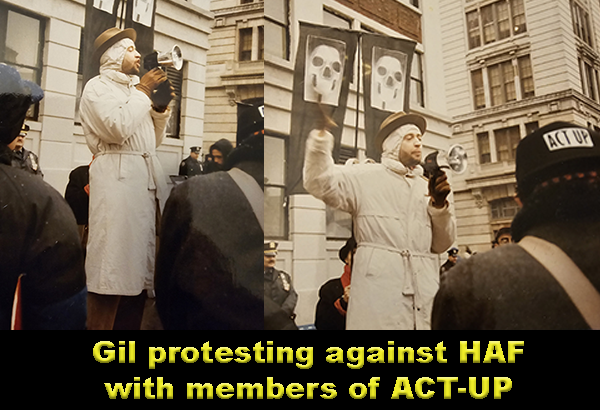
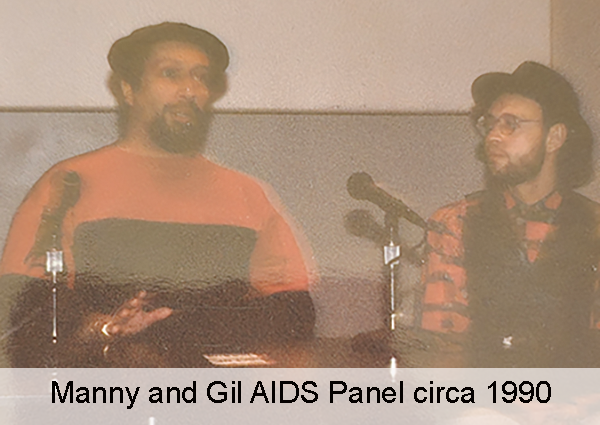
Talent Unlimited Corporation vs. MUSICA Against Drugs, Kool Herc Softball Classic
